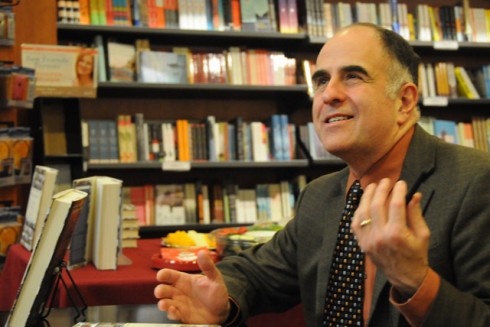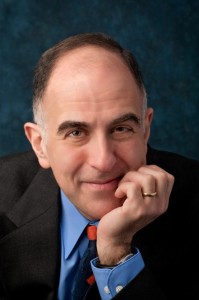Grossman Argues Truth Was Lost in the Election


Professor of Economics Richard Grossman tells his students that getting closer to the truth is what economic research is all about. That’s why he was so dismayed when “my devotion to, and belief in, the truth was battered by the presidential election,” he writes in an op-ed on The Hill.
He writes:
It turns out that polling data and analysis contained very little truth. The news were no better. The mainstream media got many things wrong. And there was no shortage of fake news. Although peddled as the real thing, it really wasn’t even trying to provide truth, only to shape opinion.
But by far the biggest letdown in the truth department was Donald Trump, who proved that telling lie upon lie upon lie need not prevent someone from being elected president.
“What should the truth-loving public do going forward?” Grossman asks.
First, pay attention to sources. It is relatively easy to construct a realistic website that has the look and feel of a real news organization or reputable think tank. Do not be fooled. If someone tells you something about the state of employment in the United States, double check facts at Bureau of Labor Statistics’ website. The U.S. government is the best, most reliable source for factual data about the nation’s economy. Obama didn’t fudge the numbers, and Trump is unlikely to be able to do so.
Second, even relatively trusted new sources have their less trustworthy bits. In print media, the division between truth and opinion is usually clear. You can generally trust what you read in the Wall Street Journal, until you get to the opinion pages. Television networks are less clear about separating fact from fiction. CNN’s hiring of Trump campaign employee Corey Lewandowski—while he was on the Trump payroll and still subject to a non-disclosure agreement—should have set off alarm bells among CNN viewers, not to mention the better journalistic instincts of CNN’s management.
Third, be demanding. I encourage my students to challenge the authors that they read in class, including me. Ask questions, check sources and verify the truth for yourself. Just because something has been shared on Facebook a million times does not mean it is true. We should challenge the assertions of politicians of all stripes just as vigorously.
Finally, we need to care more about the truth. One of the most troubling aspects of the election was that so many people voted for Trump despite being fully aware of his many lies because “he shouldn’t be taken literally.” At the risk of sounding naive again, approaching national elections with the attitude that outright lies don’t matter does not bode well for the future of our democracy.

